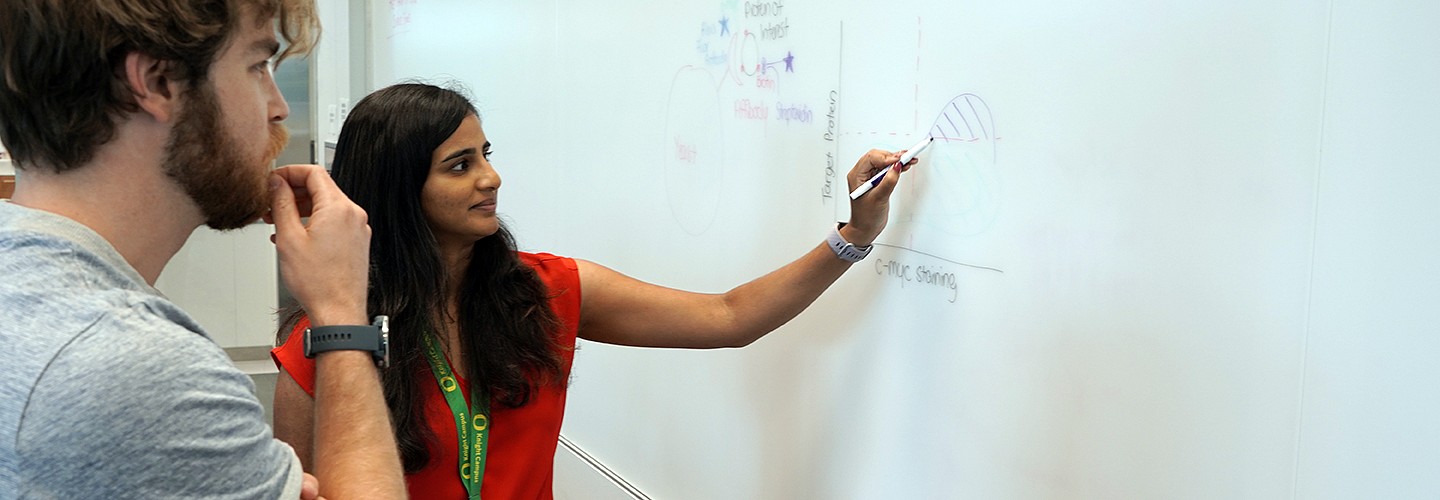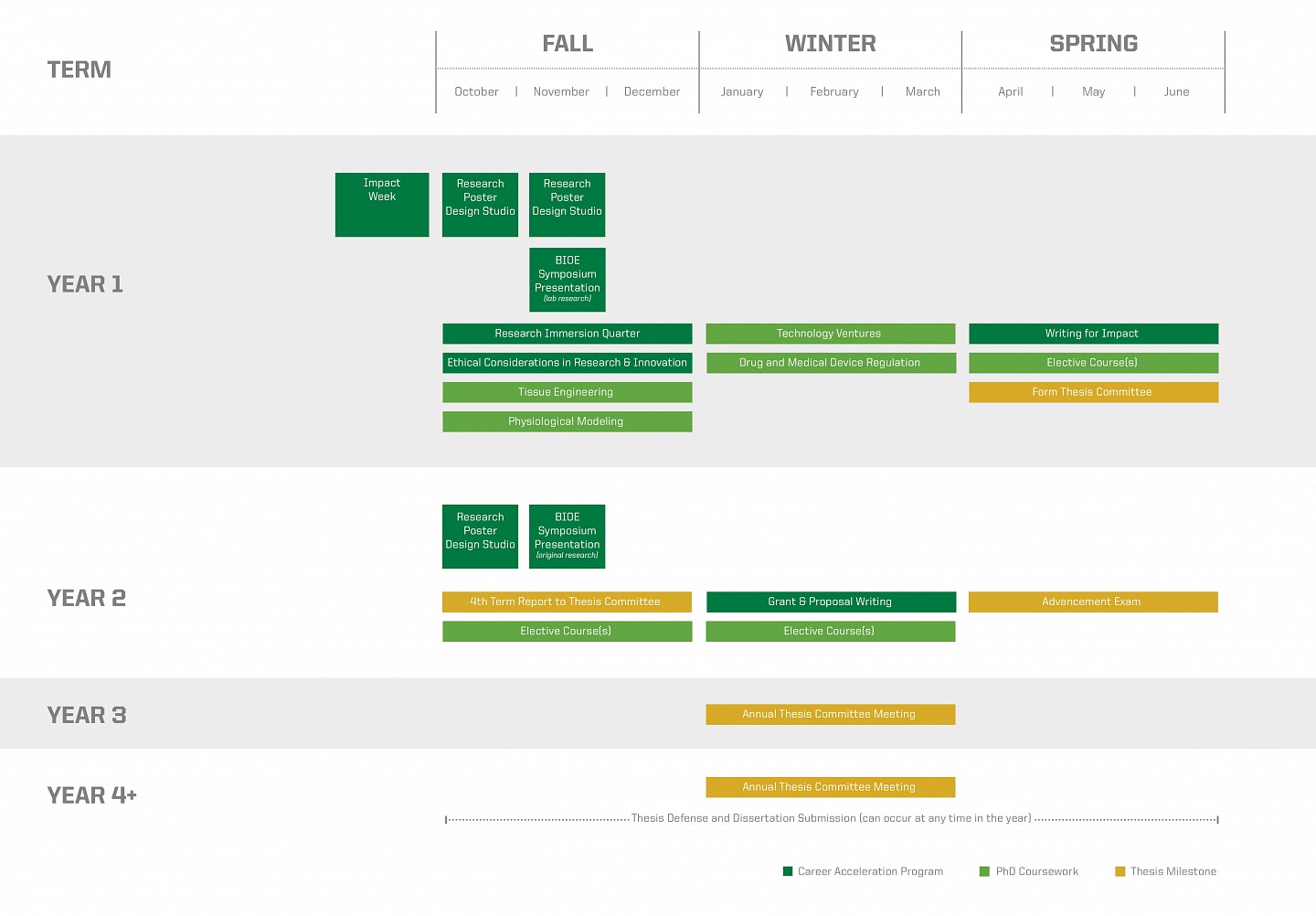
We Focus on Your Success
Join a PhD program designed to jump start and accelerate your success. Earn a dual-shield degree from the University of Oregon (UO) and Oregon State University (OSU) with full access to the world-class facilities and resources at both universities. Make impactful and innovative discoveries at the forefront of bioengineering research in areas like regenerative medicine, synthetic biology, biosensors and devices. Engage in an immersive curriculum, high impact research opportunities, and targeted research and career training programs that will take your science, and your career, to the next level.
Explore UO Bioengineering Faculty | Explore OSU Bioengineering Faculty
Program Information
DEGREE EARNED
Doctor of Philosophy (PhD) in Bioengineering
DUAL-SHIELD DIPLOMA
Awarded by the University of Oregon and Oregon State University
APPLICATION DEADLINE
Apply by December 1 for full consideration
FINANCIAL SUPPORT
Full tuition waiver and living stipend
GRADUATE RECORD EXAM (GRE)
GRE scores are not required to apply for admission
Curriculum
The design of our curriculum helps students create an academic plan that drives their research and career success. This starts with minimizing core requirements to four courses that prepare students to apply bioengineering fundamentals toward innovations that advance human health. Students then tailor their individual experience through an unrivaled set of elective options. Joint program students can choose any graduate-level course at UO or OSU that aligns with their research or career goals. Students take exactly what they need to advance their science.
Knight Campus graduate students complement their academic coursework through a career acceleration program: a suite of advanced trainings in ethics, science communication, innovation and entrepreneurship, grant writing, design thinking, and career planning that accelerate their academic and professional success.
Core Course Requirements:
Bioengineering Fundamentals
- Tissue Engineering (3 Cr).
- Modeling of Physiological Systems (4 Cr).
Innovation and Technology Translation
- Drug and Medical Device Regulation (3 Cr).
- Technology Ventures: From Concept to Commercialization (3 Cr).
Electives:
- 10 credits (3-4 courses) of electives from any graduate-level course at UO or OSU.
- Examples* of UO Department of Bioengineering electives include:
- Biosensors
- BioMEMS and Medical Microdevices
- Biomaterials
- Protein Engineering & Design
- Recurrent Neural Networks
- Biodesign
- Design & Fabrication of Bio-Material Interfaces
- Machine Learning
- Advanced Manufacturing
* There are significant offerings from other UO science departments and OSU engineering. More examples are found in the handbook.
Career Acceleration Sequence:
- Participation in Impact Week, Poster Workshop and participation in Oregon Bioengineering Symposium during first and second year (1 Cr).
- Ethical Considerations in Research and Innovation (1 Cr).
- Writing for Impact (1 Cr).
- Grant writing and fellowship application workshop (1 Cr).
Program Timeline

Program Handbook
Get a detailed breakdown of the OSU-UO Joint Bioengineering PhD Program. Learn about program requirements, enrollment, courses, electives, and thesis defense.
Applicant Background
Students with a variety of STEM and quantitative backgrounds are well positioned to succeed and are encouraged to consider applying. Examples include all engineering fields, biology, chemistry, physics and biophysics. Prior experience in bioengineering is not necessary but is an advantage.
Competitive applicants have previous experience in academic or industry research, or project-based coursework experience; strong math and quantitative skills; and undergraduate coursework in multi-variate calculus, differential equations, biology, general chemistry. Please note that these are recommendations; we are happy to answer questions about your competitiveness for this program as all students bring different experiences. For questions regarding the program or application process, please contact bioengineering@uoregon.edu.
We welcome all students irrespective of background, race, ethnicity, abilities, culture, religion, sexual orientation, gender, or socioeconomic status.
